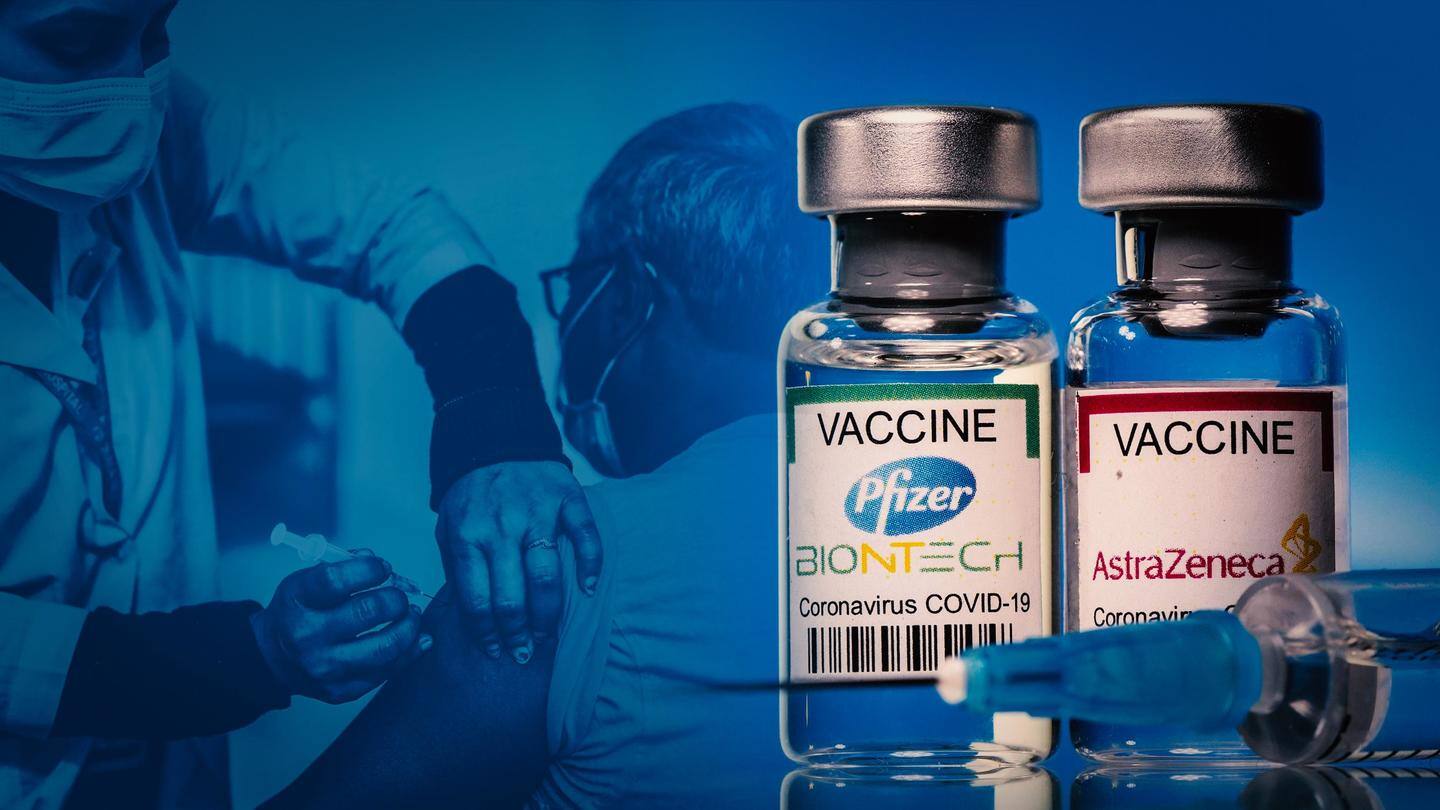
Pfizer, AstraZeneca vaccines less effective against Delta variant: Oxford study
What's the story
COVID-19 vaccines developed by Pfizer and AstraZeneca are less effective against the Delta variant of the coronavirus, compared to the Alpha variant, a study led by researchers at the University of Oxford said.
The Delta variant, first identified in India, drove a deadly second wave of the pandemic here and is currently triggering outbreaks in the United States and England.
Details
Immunity fades within 3 months of second dose
The study found that 90 days after the second dose of the Pfizer or AstraZeneca vaccine, their efficacy in preventing infections reduced to 75% and 61%, respectively.
Those figures were 85% and 68%, respectively, as seen two weeks after the second dose, Reuters reported.
The decline in efficacy was more pronounced among people aged 35 years and older than the younger population.
Findings
High virus levels in vaccinated and unvaccinated people
The study further revealed that Delta infection after two vaccine doses generated similar peak levels of virus as those in unvaccinated people, the researchers said.
"The fact that they can have high levels of virus suggests that people who aren't yet vaccinated may not be as protected from the Delta variant as we hoped," said Sarah Walker, a professor at the University of Oxford.
Details
Vaccines still offer 'good protection' against infection
However, researchers added that taking two shots of these vaccines still offers good protection against new infection.
In fact, it remains the best way available to fight the Delta variant of COVID-19.
"Both of these vaccines, at two doses, are still doing really well against Delta...When you start very, very high, you got a long way to go," Walker said.
Study
When was this study carried out?
The researchers analyzed over 25 lakh test results from samples taken from more than 3,84,000 participants aged 18 years or older between December 1, 2020 and May 16, 2021.
They further studied over 8,11,000 test results from around 3,60,000 participants between May 17, 2021 and August 1, 2021.
These periods were taken to contrast before and after the Delta variant became prevalent in UK.
Variant
What is the Delta variant?
Delta, also known by its formal scientific name B.1.617.2, is said to be the most infectious coronavirus variant identified yet.
It was first detected in India last year, driving the country's devastating second surge, which peaked at 4,14,000 cases in May.
Besides the UK, the United States is also seeing a massive surge in daily new infections due to the same strain.
Boosters
US to start giving booster shots amid infection surge
Considering the fresh surge and weakening immunities, the US has decided to start administering COVID-19 booster shots as early as next month.
They cited similar data showing that vaccine-generated immunity starts fading months after the initial two doses.
Eligible Americans will be able to take a booster shot eight months after receiving their second dose of Pfizer or Moderna's vaccines, according to US officials.